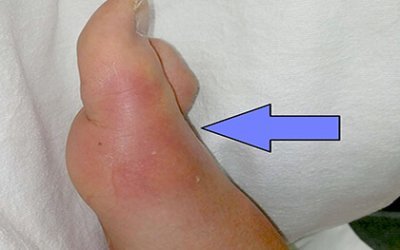How to cure mouth ulcers fast & naturally?

Welcome to our informative guide on mouth ulcers – a common oral ailment that affects many. In this comprehensive blog, we delve into the facts surrounding mouth ulcers, exploring their causes, symptoms, and prevalence. Gain a deeper understanding of this discomforting condition as we navigate through the science behind it.
Furthermore, we provide practical insights into managing and treating mouth ulcers naturally. From readily available home remedies to evidence-based tips, our goal is to empower you with knowledge that promotes faster healing and lasting relief. Backed by scientific understanding, this blog aims to provide you with accurate insights into the factors contributing to the onset of mouth ulcers.
Possible Causes of Mouth Ulcers:
Mouth ulcers, also known as aphthous ulcers, can have various causes, and understanding them is crucial for effective management. Here are some possible causes:
Trauma or Injury: Accidental biting, aggressive tooth brushing, or dental work can lead to the formation of mouth ulcers.
Stress and Hormonal Changes: Emotional stress and hormonal fluctuations, especially in women during menstruation, may contribute to the development of ulcers.
Certain Foods: Highly acidic or spicy foods, as well as food allergies, can trigger mouth ulcers in susceptible individuals.
Nutritional Deficiencies: Lack of essential nutrients, such as vitamin B12, iron, and folate, can lead to the development of oral ulcers.
Immune System Dysfunction: Conditions like autoimmune diseases, where the immune system mistakenly attacks healthy cells, can cause recurrent mouth ulcers.
Infections: Viral, bacterial, or fungal infections in the mouth may contribute to ulcer formation.
Genetic Predisposition: Some individuals may have a genetic predisposition to developing mouth ulcers.
Understanding these potential causes can aid in identifying triggers and adopting preventive measures for managing and minimizing the recurrence of mouth ulcers. If you experience persistent or severe ulcers, it’s advisable to consult with a healthcare professional for a thorough evaluation and appropriate guidance.
Recognizing Symptoms:
Mouth ulcers typically present with identifiable symptoms that can vary in intensity. Here are common symptoms associated with mouth ulcers:
Pain and Discomfort: Mouth ulcers often cause localized pain or discomfort, making activities like eating and speaking uncomfortable.
Round or Oval Sores: Ulcers usually appear as small, round or oval sores with a white or yellowish center and a red border.
Swelling and Redness: The affected area may show signs of inflammation, including swelling and redness around the ulcer.
Difficulty Eating: Due to the sensitivity of the ulcerated area, individuals may experience difficulty eating, especially when consuming spicy or acidic foods.
Irritation or Tingling Sensation: Before the ulcer becomes visible, some people may experience irritation or a tingling sensation at the site where the ulcer will develop.
Recurrent Episodes: Individuals prone to mouth ulcers may experience recurrent episodes, with new ulcers forming periodically.
Minor Bleeding: In some cases, minor bleeding may occur when the ulcerated area is disturbed, such as during brushing or eating.
It’s important to note that while most mouth ulcers are benign and resolve on their own within a week or two, persistent or unusually large ulcers should be evaluated by a healthcare professional. Additionally, if you experience other concerning symptoms alongside mouth ulcers, seeking medical advice is recommended for a comprehensive assessment.

Management Strategies to cure mouth ulcers quickly:
I am not a medical professional, but I can offer some general suggestions that may help alleviate the discomfort of mouth ulcers. It’s important to consult with a healthcare professional for personalized advice. Here are some management strategies that may help:
Maintain Oral Hygiene:
Gently brush your teeth with a soft-bristled toothbrush to avoid irritation.
Use a mild, non-alcoholic mouthwash or saltwater rinse to keep the area clean.
Topical Treatments:
Over-the-counter topical gels or ointments containing ingredients like benzocaine or hydrogen peroxide may provide temporary relief.
Avoid products with alcohol, as they can be irritating.
Avoid Irritants:
Avoid spicy, acidic, or hot foods that can aggravate the ulcer.
Steer clear of tobacco and alcohol, as they can slow down the healing process.
Hydration:
Drink plenty of water to stay hydrated and promote overall oral health.
Nutrition:
Ensure you have a well-balanced diet rich in vitamins and minerals, especially vitamin B12, iron, and folic acid, which are essential for oral health.
Oral Moisturizers:
Consider using oral moisturizers or saliva substitutes if you have dry mouth, as they can help maintain a moist environment in the mouth.
Avoid Trauma:
Be cautious while eating to avoid accidentally biting the ulcer.
Try to reduce stress, as it may contribute to the development of mouth ulcers.
Pain Relief:
Over-the-counter pain relievers such as acetaminophen or ibuprofen may help alleviate pain and inflammation. Follow the recommended dosage.
Prescription Medications:
In some cases, a healthcare professional may prescribe topical steroids or other medications to speed up healing and reduce inflammation.
Seek Professional Advice:
If the mouth ulcer persists for more than two weeks, is recurrent, or if you experience severe pain, it’s important to consult with a healthcare professional or a dentist for a proper diagnosis and treatment plan.
Exploring Herbal Remedies
Here are some home remedies that may help alleviate the discomfort of mouth ulcers and promote faster healing:
- Fenugreek leaves:
The herb helps in the healing of mouth ulcers. An infusion of the leaves is used as a gargle for recurrent ulcers.
- Jasmin Leaves:
Chew a few leaflets for 10 minutes and rinse out the mouth in lukewarm water. Repeat frequently for better results.
- Honey:
Apply a small amount of honey directly to the ulcer. Honey has natural antibacterial properties and can promote healing.
- Coconut Oil:
Swish a small amount of coconut oil in your mouth for a few minutes before spitting it out. Coconut oil possesses anti-inflammatory and antimicrobial properties.
- Aloe Vera Gel:
Apply aloe vera gel directly to the ulcer. Aloe vera has soothing properties and may aid in reducing inflammation. You can make gel out of the leaves by grinding the pulp.
- Baking Soda Paste:
Mix baking soda with a small amount of water to create a paste. Apply the paste directly to the ulcer and leave it on for a few minutes before rinsing. Baking soda can help neutralize acidity and reduce irritation.
- Chamomile Tea Rinse:
Brew a chamomile tea bag, let it cool, and use it as a mouthwash. Chamomile has anti-inflammatory properties that may help soothe mouth ulcers.
- Turmeric Paste – (The Golden Healer):
Half a teaspoon of turmeric powder can be mixed with coconut oil to make a paste. Use it on the affected area 2-3 times daily for better results.
Remember, individual responses to these remedies can vary, and it’s essential to discontinue any remedy if it irritates you. If mouth ulcers persist or worsen, seeking advice from a healthcare professional is recommended.
References
Crispian Scully and Rosemary Shotts (2000). Mouth ulcers and other causes of orofacial soreness and pain. National Library Of Medicine. View
Sadia Minhas, Aneequa Sajjad, Muhammad Kashif, Farooq Taj, Hamed Al Waddani, and Zohaib Khurshid. (2019). Oral Ulcers Presentation in Systemic Diseases: An Update. The National Library Of Medicine. View
- H.K.Bakhru (1992) Herbs That Heal: Natural Remedies for Good Health. Orient Paperbacks. Delhi, India.
- T.V.Sairam (1999) Home Remedies Vol-II: A Handbook of Herbal Cures for Common Ailments. Penguin Books India.
Dos
Maintain Good Oral Hygiene:
Gently brush your teeth with a soft-bristle toothbrush and use a mild, alcohol-free mouthwash to keep the mouth clean.
Rinse with Saltwater:
Use a warm saltwater solution to rinse your mouth several times a day to reduce inflammation and promote healing.
Choose a Soft Diet:
Opt for a soft, bland diet that minimizes irritation to the ulcers. Include foods that are easy to chew and swallow.
Stay Hydrated:
Drink plenty of water to prevent dehydration and promote overall oral health.
Consider Nutritional Supplements:
If nutritional deficiencies are suspected, consider supplements, especially for vitamins like B12, iron, and folate.
Avoid Irritants:
Steer clear of spicy, acidic, or rough-textured foods that can exacerbate discomfort.
Don’ts
Avoid Tobacco:
Refrain from smoking or using tobacco products, as they can hinder the healing process and irritate the mouth.
Limit Alcohol Consumption:
Reduce alcohol intake, as it can contribute to irritation and delay the healing of mouth ulcers.
Don’t Use Harsh Mouthwashes:
Avoid mouthwashes containing alcohol, as they can be harsh and may worsen the irritation.
Don’t Consume Irritating Foods:
Steer clear of spicy, acidic, and rough-textured foods that can aggravate the ulcers.
Avoid Overusing Over-the-Counter Medications:
Use over-the-counter medications as directed and avoid excessive or prolonged use without consulting a healthcare professional.
Don’t Ignore Persistent Symptoms:
If mouth ulcers persist, are unusually large, or if you experience additional symptoms, do not ignore them. Seek professional advice for a thorough evaluation.
Send Us A Message
FAQs
- Mouth ulcers can be caused by various factors such as stress, minor mouth injury (e.g., from biting your lip), hormonal changes, certain foods (e.g., citrus fruits, spicy foods), vitamin deficiencies (e.g., vitamin B12, iron, folate), and underlying health conditions such as Crohn's disease or celiac disease.
- Mouth ulcers usually heal on their own within a week or two. Over-the-counter treatments like oral gels or creams can help relieve pain. Rinsing with salt water, hydrogen peroxide, or antiseptic mouthwash may also help. Avoiding trigger foods and practicing good oral hygiene can aid in healing.
- You should see a doctor if your mouth ulcers last longer than three weeks, are unusually large, or are accompanied by other symptoms such as fever, weight loss, or swollen lymph nodes. This could indicate a more serious underlying condition.
- Most mouth ulcers (canker sores) are not contagious. However, if you have cold sores (caused by the herpes simplex virus), they are contagious. Cold sores are different from canker sores and typically occur on the outside of the lips.














